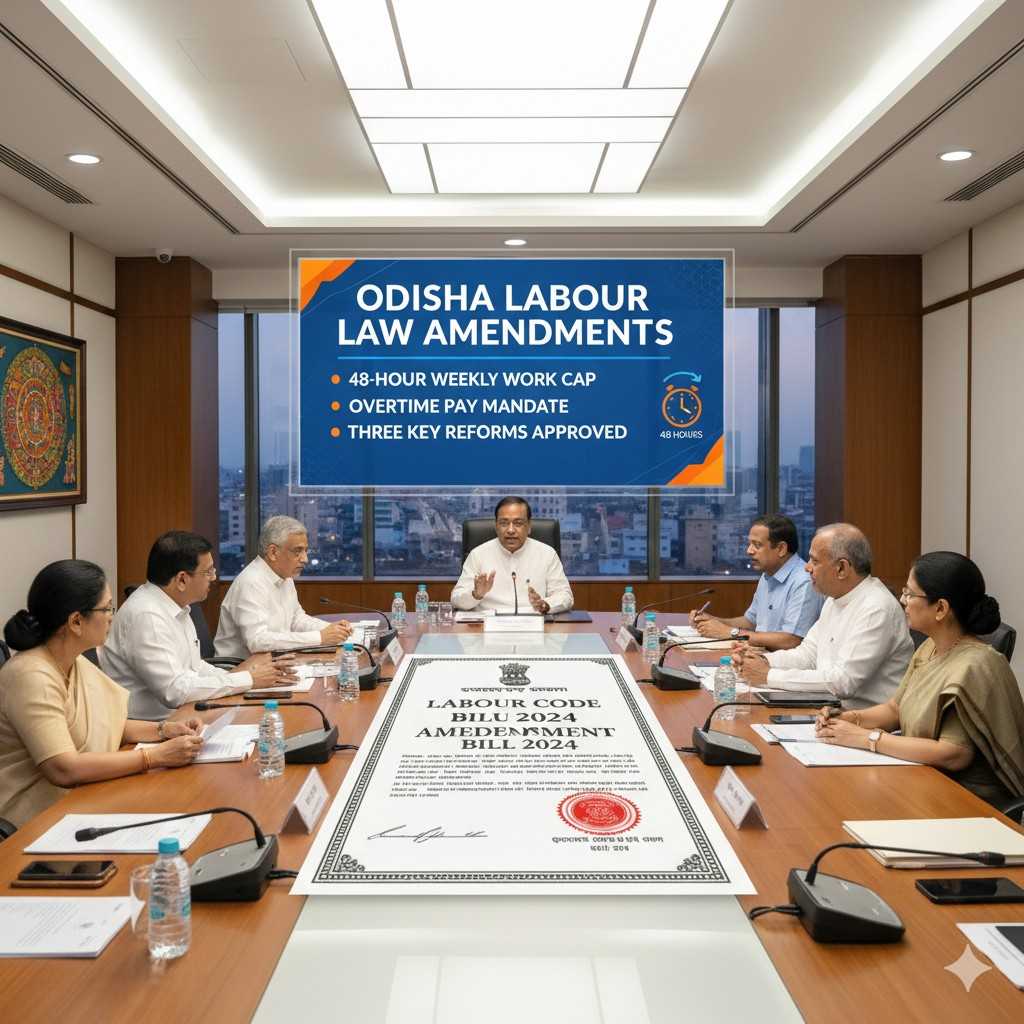
Four significant recommendations from three departments were approved by the Odisha state cabinet on Monday. These included a comprehensive temple construction plan at Ghatagaon Tarini in Keonjhar district, changes to labor regulations, and a new education program.
Under the leadership of Chief Minister Mohan Majhi, the cabinet approved changes to the Factories Act of 1948 and the Odisha Shops and Commercial Establishments Act of 1956. As a result, the weekly cap stays at 48 hours, but the daily working hours have been raised from nine to ten.
CM Majhi was advised that staff who work past that threshold will be paid overtime in accordance with the new laws.
A historic ruling that permits women workers to work night shifts as long as they obtain written authorization and the state government is in charge of their safety was also included in the amendments.
The four suggestions were approved, which is a big step toward improving Odisha’s religious tourism, education system, and labor welfare. Many members of the general public will have their well-being guaranteed by them,” Chief Minister Mohan Charan Majhi stated.
The modified Employee State Insurance (ESI) Act of 1948 will also apply to businesses with 20 or more employees. The amendments also mandate that signboards be displayed in Odia by stores and other business facilities.
Updates to the Work Schedule and Labor Guidelines
Your Attractive Heading
- Increased Daily Work Hours: The typical workday now lasts ten hours instead of nine.
- Continuous Work Limit: No organization may require its employees to work more than six hours straight without taking at least a half-hour break.
- Quarterly Overtime Cap Increased: There is now a 144-hour cap on the amount of overtime that can be worked in a quarter.
- Double Compensation for Overtime: Employees who work more than ten hours per day or more than forty-eight hours per week are entitled to double their regular pay rate.
- 24/7 Permitted: Businesses are permitted to run around the clock, every day of the year.
The plan for Godabarish Adarsha Primary School was accepted.
Your Attractive Heading
In order to strengthen elementary education in accordance with the Right to Education Act of 2009, the government approved the Godabarish Adarsha elementary School scheme. Every panchayat is to have at least one model primary school established, according to the plan.
At an estimated cost of Rs 1,200 crore, 2,200 schools would be built in the first phase over the course of three years. More than Rs 5 crore would be allocated to each school. The program will be expanded to include all panchayats in the state after the first phase is finished.
The development project for the Ghatagaon Tarini temple was approved.
Your Attractive Heading
A project around Rs 226 crore for the construction of the Ghatagaon Tarini temple in Keonjhar and the surrounding area was also authorized by the Odisha Cabinet. For the 69 acres of development work, the Detailed Project Report (DPR) has already been created.
A 500-seat hall for large events, a special Nadiya Bhandar, and a pilgrims’ inn with space for 246 people are also planned. The goal of the project is to improve facilities and infrastructure for worshippers at one of the most well-known shrines in the state.





